History


Ground-breaking discoveries originating from Swedish research
BioArctic was founded in 2003 by Professor Lars Lannfelt and Dr. Pär Gellerfors to develop important breakthrough discoveries made by Professor Lannfelt regarding Alzheimer’s disease. These discoveries – the Swedish mutation and the Arctic mutation – have attracted much attention internationally and explain the central role of amyloid-beta in Alzheimer’s disease, which has led to the development of new treatment strategies. The company’s technology is now also used for other disorders of the central nervous system.

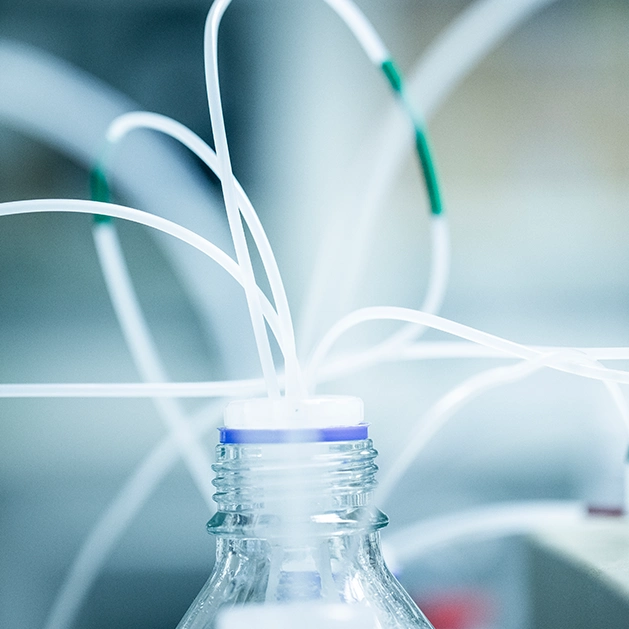


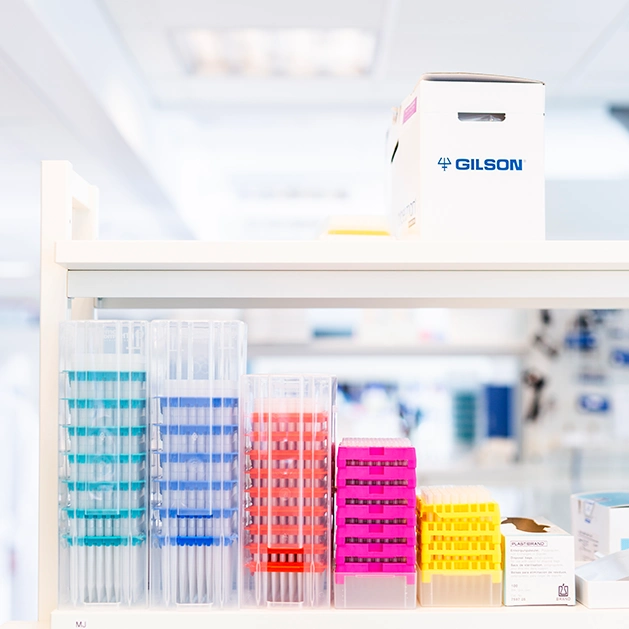
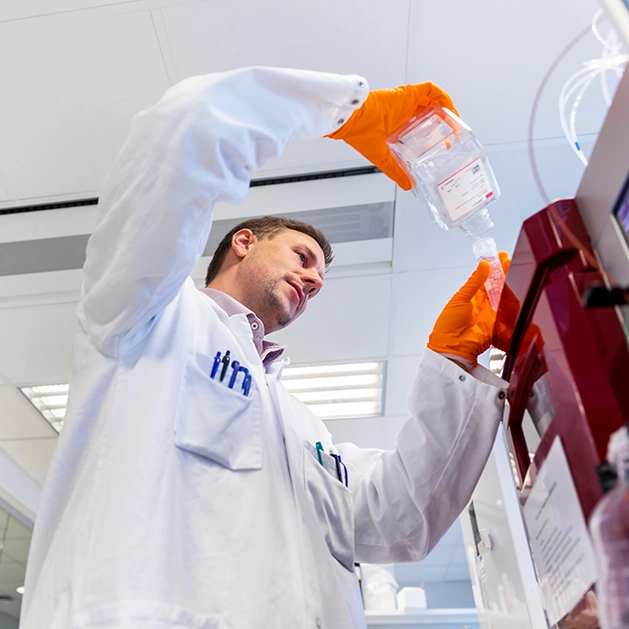
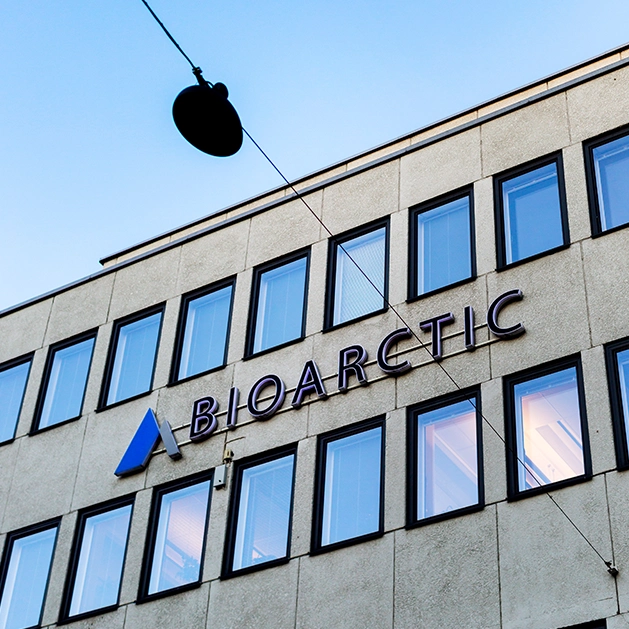
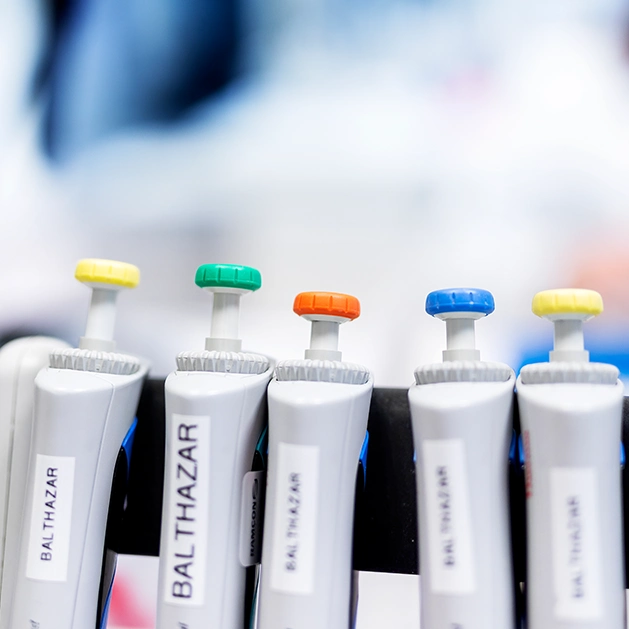
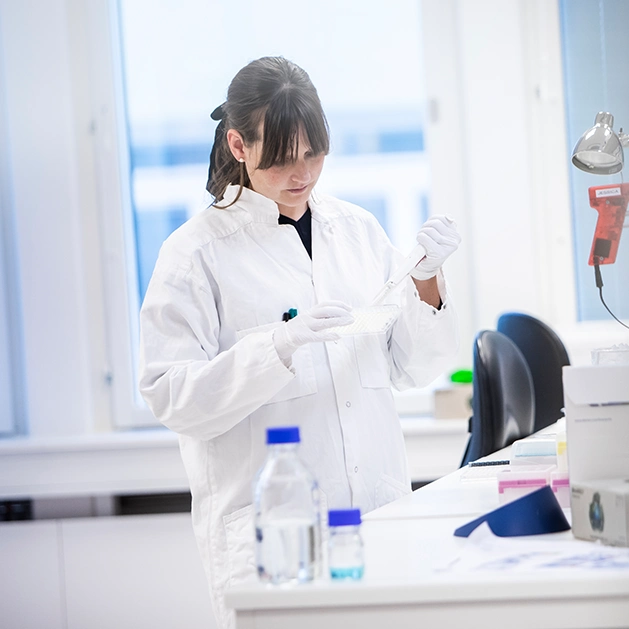
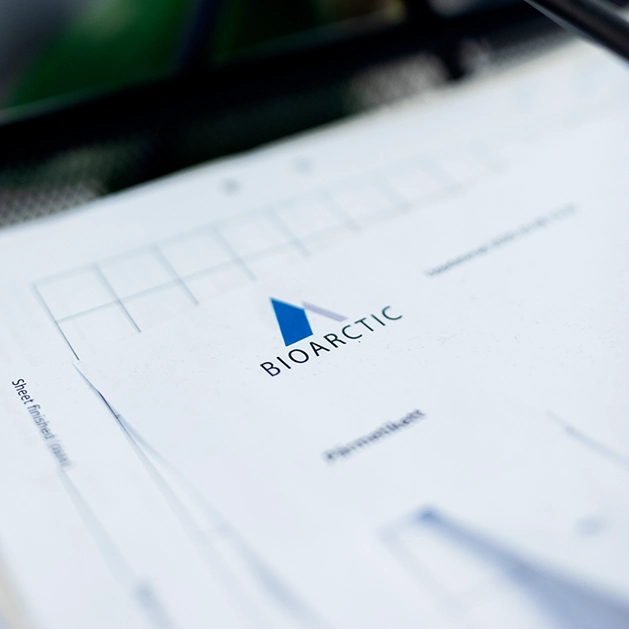
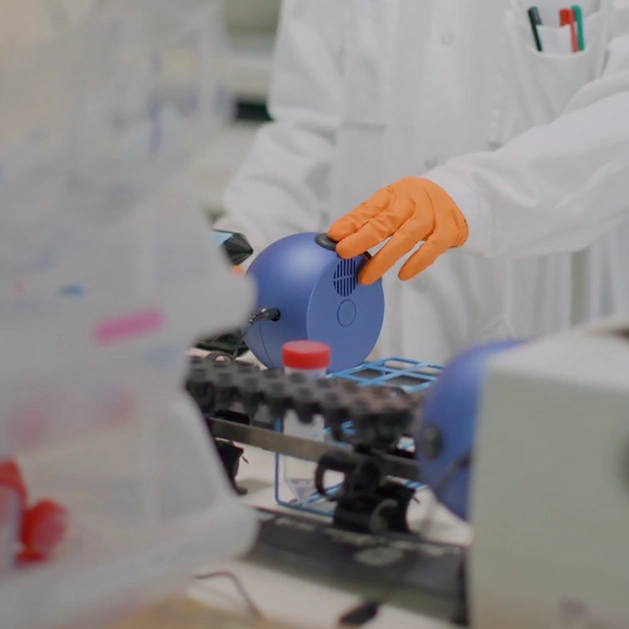

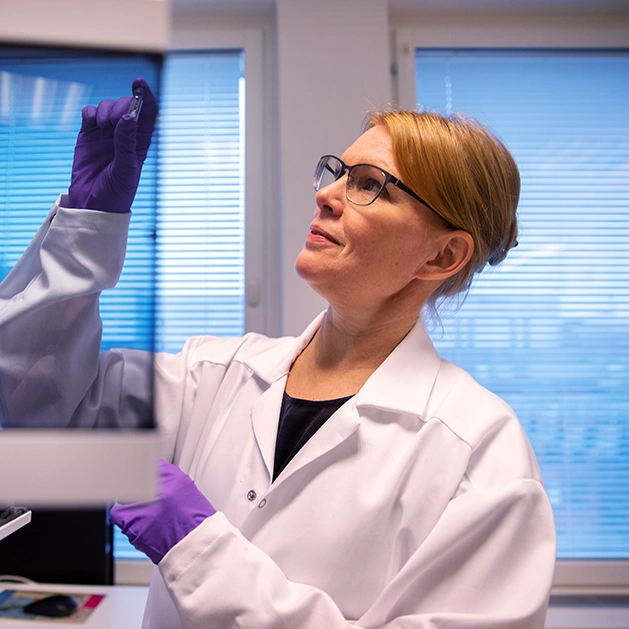
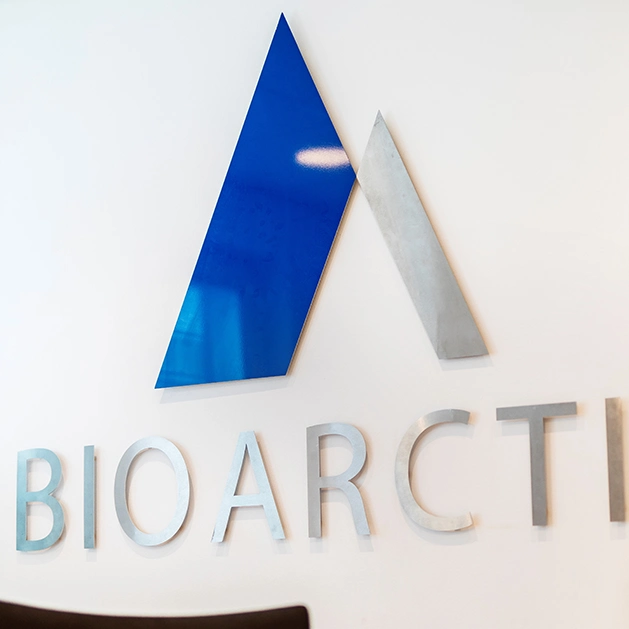
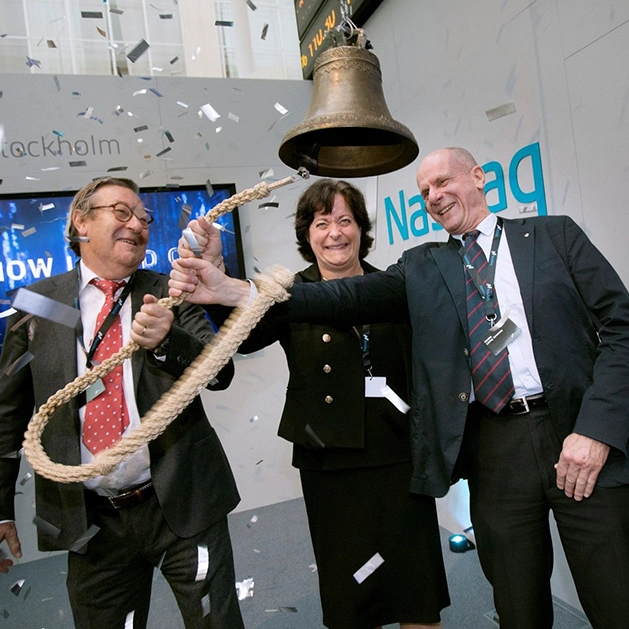
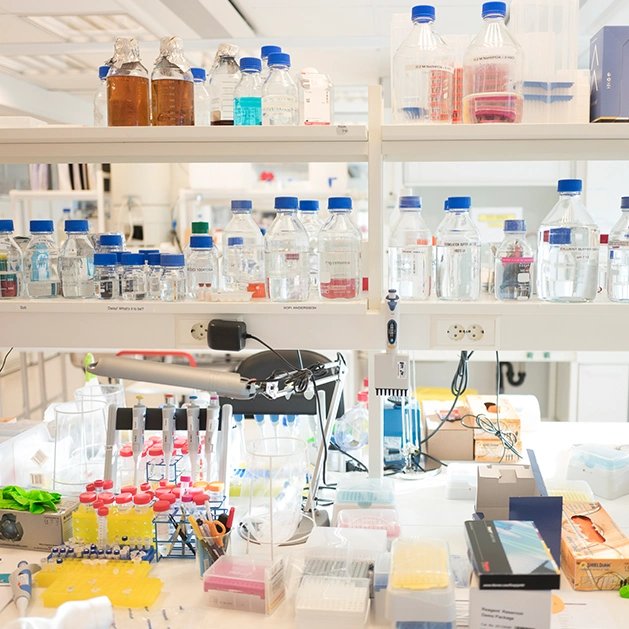





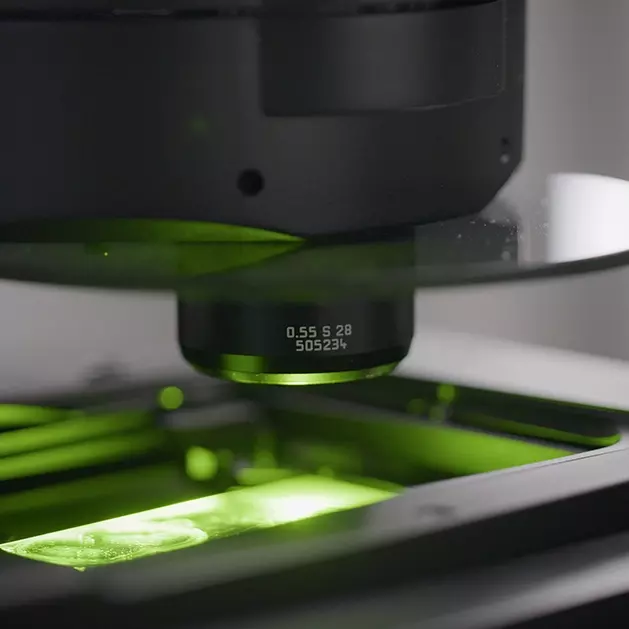
The Swedish mutation, which leads to early development of Alzheimer’s disease, was discovered in a Swedish family by Professor Lars Lannfelt.
US patent application filed on the discovery of the Arctic mutation, and its propensity to form amyloid-beta oligomers/protofibrils a target for drug intervention.
The discovery of the Arctic mutation was published. The Arctic mutation leads to increased production of amyloid-beta oligomers/protofibrils and early development of Alzheimer’s disease. This gave an insight into a new target for treatment of Alzheimer’s disease: amyloid-beta oligomers/protofibrils.
BioArctic Neuroscience AB was founded by Lars Lannfelt and Pär Gellerfors.
Karolinska Innovation AB invested in BioArctic (the asset was later transferred to Karolinska Development AB). Concerning a transgenic mouse model (APPArcSwe), BioArctic filed two important patent applications concerning a transgenic mouse model and a concept patent for antibody treatment of Alzheimer’s disease.
The drug candidate mAb158 (precursor to BAN2401) was isolated at Uppsala University, in Sweden. BioArctic and Eisai entered into a research collaboration concerning a disease modifying treatment for Alzheimer’s disease. BioArctic started research on Parkinson’s disease in collaboration with Uppsala University Holding AB invested in BioArctic.
BioArctic was located in own premises in Stockholm, Sweden.
BioArctic and Eisai entered into a license agreement concerning the antibody BAN2401 as a disease modifying treatment of Alzheimer’s disease as a result of the research collaboration agreement of 2005. The second US patent for Alzheimer’s disease was granted. BioArctic filed a patent application concerning the antibody BAN2401.
BioArctic and Eisai entered into a second research collaboration concerning a back-up antibody to BAN2401.
BioArctic signed an extension of the ongoing research collaboration with Eisai on immunotherapy for Alzheimer’s disease.
BioArctic’s partner Eisai started a clinical Phase 2b study in the US concerning the drug candidate BAN2401 and the clinical development of Lecanemab back-up was started in Japan.
The clinical development of BAN2401 in Alzheimer’s disease was started in Europe. BioArctic’s partner Eisai entered into an agreement with Biogen concerning the continued development and commercialization of BAN2401 in Alzheimer’s disease.
BioArctic and Eisai entered into a license agreement concerning BAN2401 back-up, a follow-up project to BAN2401, and a third research collaboration agreement concerning a new disease modifying treatment for Alzheimer’s disease. BioArctic’s research program on Parkinson’s disease received grants from Swedish Vinnova and the EU’s research and development program Horizon2020 (Grant Agreement No. 697790).
The company’s name was changed from BioArctic Neuroscience AB to BioArctic AB. BioArctic entered into a collaboration agreement with AbbVie concerning research on Parkinson’s disease.
Trading in BioArctic’s B-shares commenced October 12th on Nasdaq Stockholm. The patent for BAN2401 was granted in the US and BioArctic’s patent for its product candidate antibody BAN0805, for Parkinson’s disease, was granted in Europe.
Positive BAN2401 Phase 2b clinical study results in early Alzheimer’s disease were presented. Out-licensing of the portfolio of antibodies targeting alpha-synuclein to AbbVie for Parkinson’s disease and other potential indications. Extended research collaboration with Uppsala University regarding new antibody technologies for increased passage across the blood-brain barrier (BBB-technology).
The Phase 3 study with BAN2401 in patients with early Alzheimer’s disease was initated. BioArctic initiated a research collaboration with Eisai aimed at further studying the unique profile of Lecanemab back-up. BAN-0805 in Phase 1 for Parkinson’s disease. SC0806 closing since the results from the interim analysis of the Phase ½ study for complete spinal cord injury did not show any convincing effect.
BioArctic’s drug candidate BAN2401 is assigned the international nonproprietary name lecanemab. Alzheimer’s patients globally and in Sweden are included in the confirmatory Phase 3 study with lecanemab. A new global Phase 3 program is initiated with lecanemab in preclinical asymptomatic Alzheimer’s disease. Eisai presents promising new data from the open-label Phase 2b extension study with lecanemab. BioArctic receives the 2020 Allbright Prize for its equality initiatives.
The FDA grants breakthrough therapy and fast track designation for lecanemab in Alzheimer’s disease. Eisai initiates a rolling submission of the application to the FDA for market approval of lecanemab in early Alzheimer’s disease under an accelerated pathway. BioArctic combines two early projects against Alzheimer’s disease, AD-BT2802 and AD-BT2803, with its blood-brain barrier technology.
New data for BAN0805 in Parkinson’s disease is presented at the MDS congress, and preclinical data showing that BAN0805 selectively binds to soluble harmful aggregates of alpha-synuclein is published in Neurobiology of Disease. BioArctic also announced that its ND3014 drug candidate targets the development of selective antibody drugs with the protein TDP-43 for the treatment of the rare neurodegenerative disease ALS.
In May, the US Patent Office granted a new compound patent for the antibody BAN0805 (formerly ABBV-0805), which was developed by BioArctic as a potential treatment for Parkinson’s disease. The patent expires in 2041, with a possible patent term extension up through 2046.
Positive results reported from Clarity AD In September, BioArctic’s partner Eisai reported positive top-line results from Clarity AD, the confirmatory Phase 3 study that included 1,795 patients with early Alzheimer’s disease. The study met the primary endpoint on the Clinical Dementia Rating-Sum of Boxes (CDR-SB) scale, and demonstrated a slowing of clinical decline with high statistical significance. All key secondary endpoints were also met, with high statistical significance. In November, the company’s partner Eisai presented the detailed results from Clarity AD at the 2022 Clinical Trials on Alzheimer’s Disease (CTAD) conference. The results were simultaneously published in the New England Journal of Medicine.
Parkinson’s project combined with BT technology In November, BioArctic announced that the company had expanded its project portfolio with the PD-BT2238 project, a selective antibody targeted at soluble alpha-synuclein aggregates that had been combined with the company’s Brain Transporter technology. The goal is to increase the amount of antibodies that reach the brain to increase the efficacy of a potential treatment for Parkinson’s disease.
Nordic subsidiaries established
BioArctic established subsidiaries in Denmark, Finland and Norway ahead of a potential launch of lecanemab in the Nordic region.
FDA gave full approval for Leqembi in the US
In early July, the US Food and Drug Administration gave full approval of Leqembi. The approval means that Leqembi became the first fully approved treatment that has been shown to slow the progress of Alzheimer’s disease. In September, Japan became the second country in the world to approve Leqembi as a treatment for Alzheimer’s disease.
Lecanemab recognized
Lecanemab was awarded the prize for Best New Drug and the prize for Clinical Advance of the Year at the 2023 Scrip Awards. In October, TIME magazine named lecanemab one of the year’s best innovations in the category of medical care.
BioArctic granted patents for its Parkinson’s project in Japan
In late August, the Japanese Patent Authority granted new patent protection for the drug candidate exidavnemab, an antibody designed as a potential treatment of Parkinson’s disease.
In August 2024, Leqembi was approved for the treatment of Alzheimer’s disease in United Arab Emirates and Great Britain, and in July in Hong Kong and Israel. In May the drug was approved in South Korea.
In April 2024, BioArctic entered into a research evaluation agreement with Eisai regarding BAN2802.
Lecanemab was approved and launched in China.